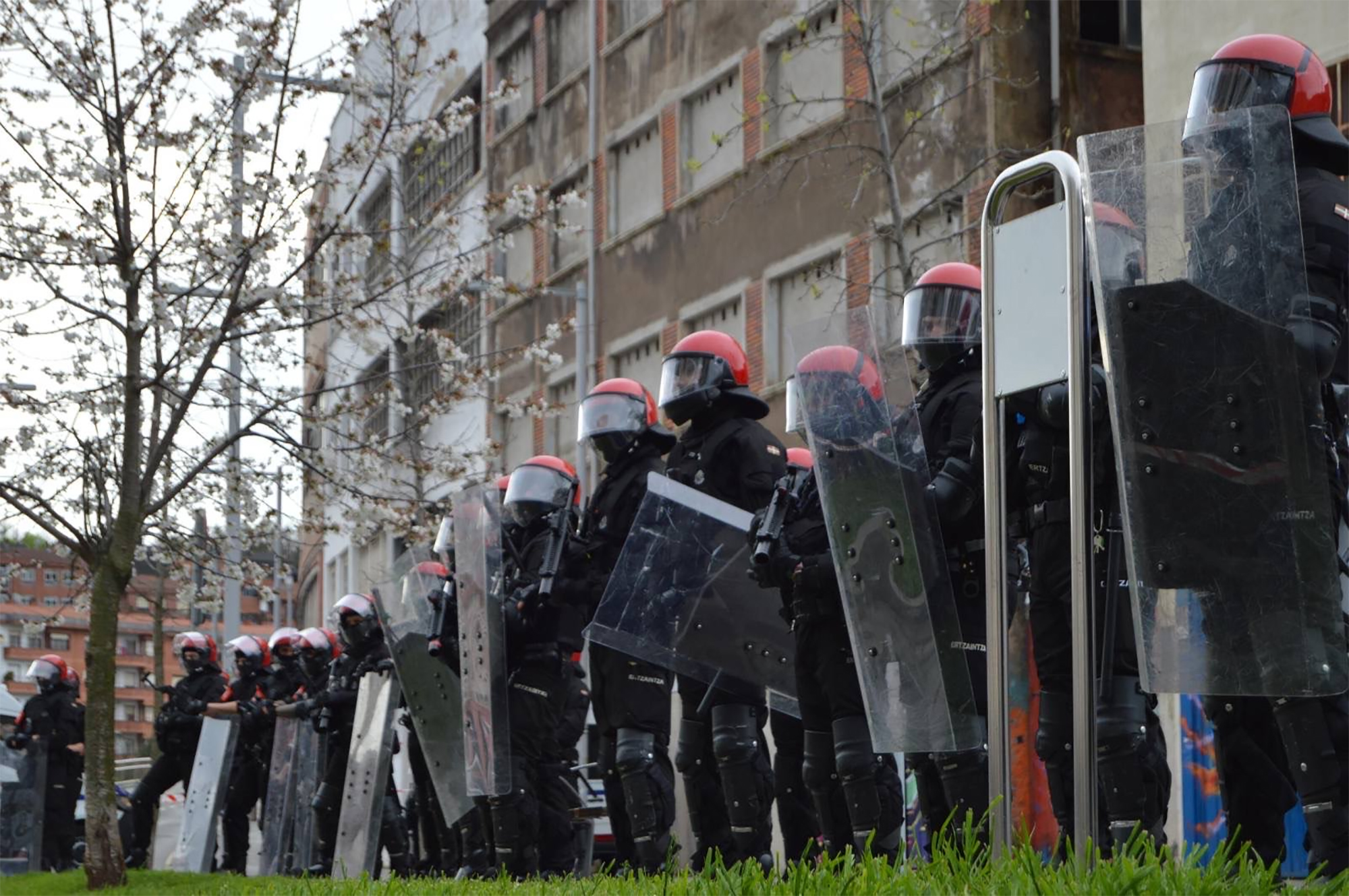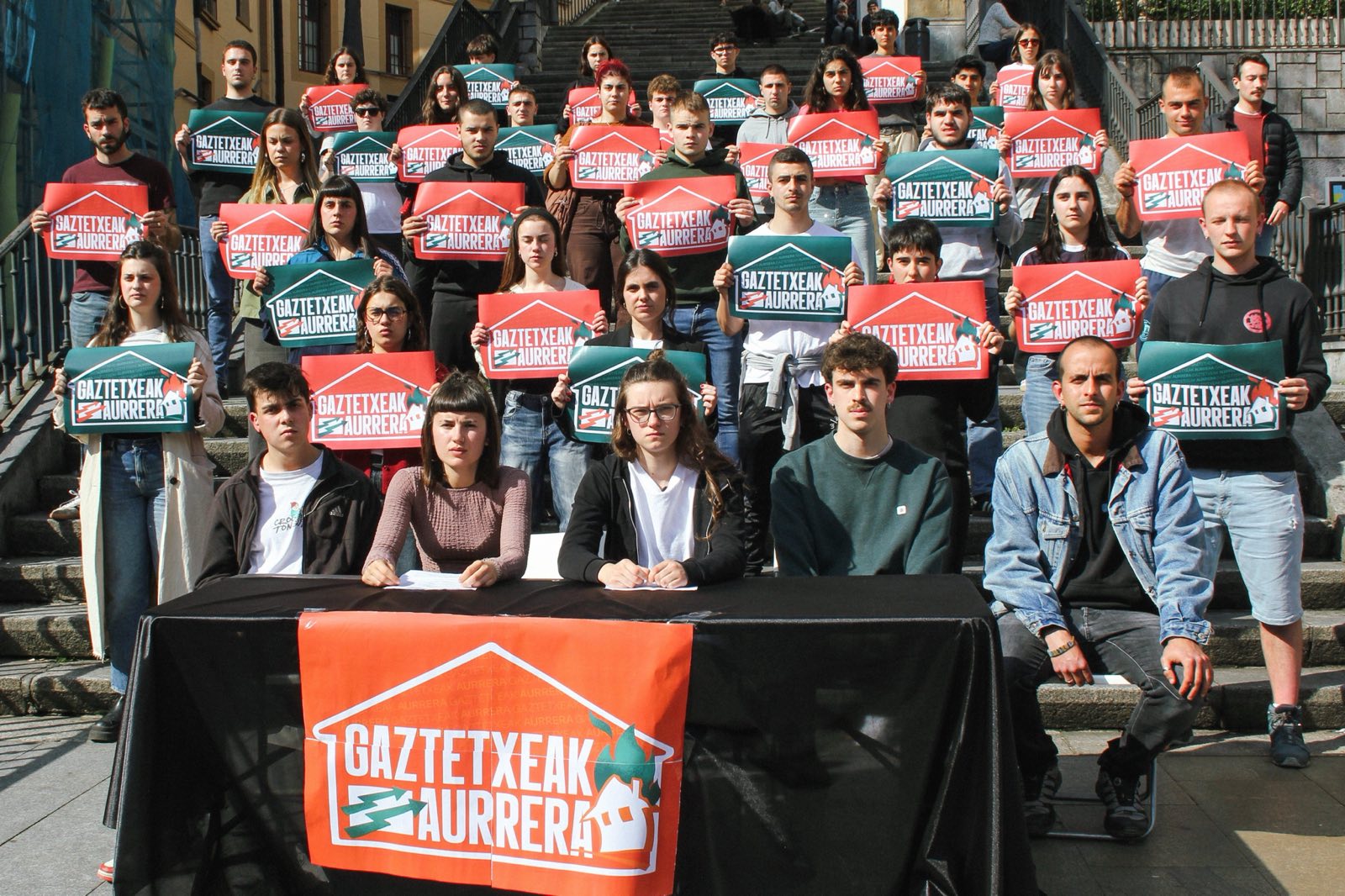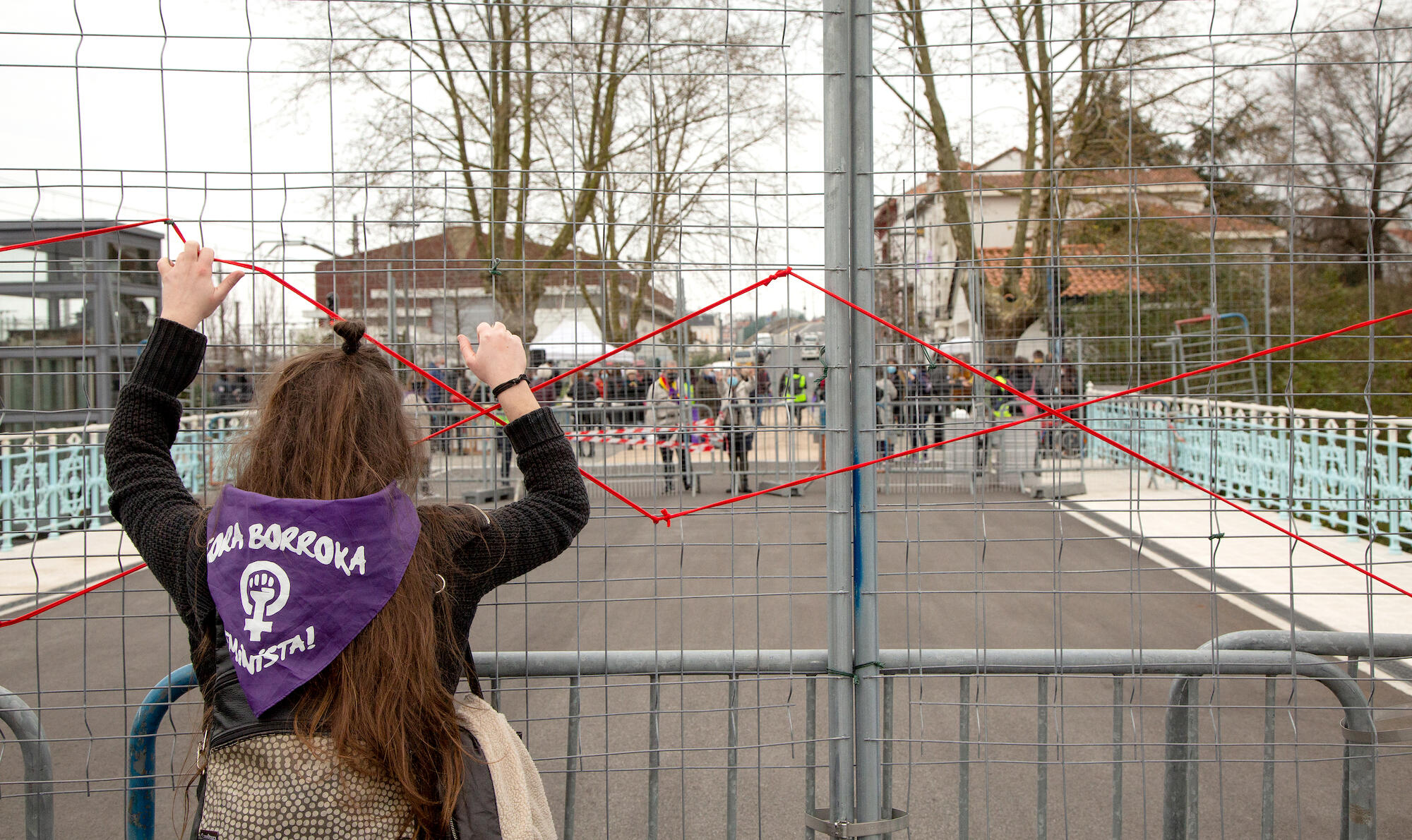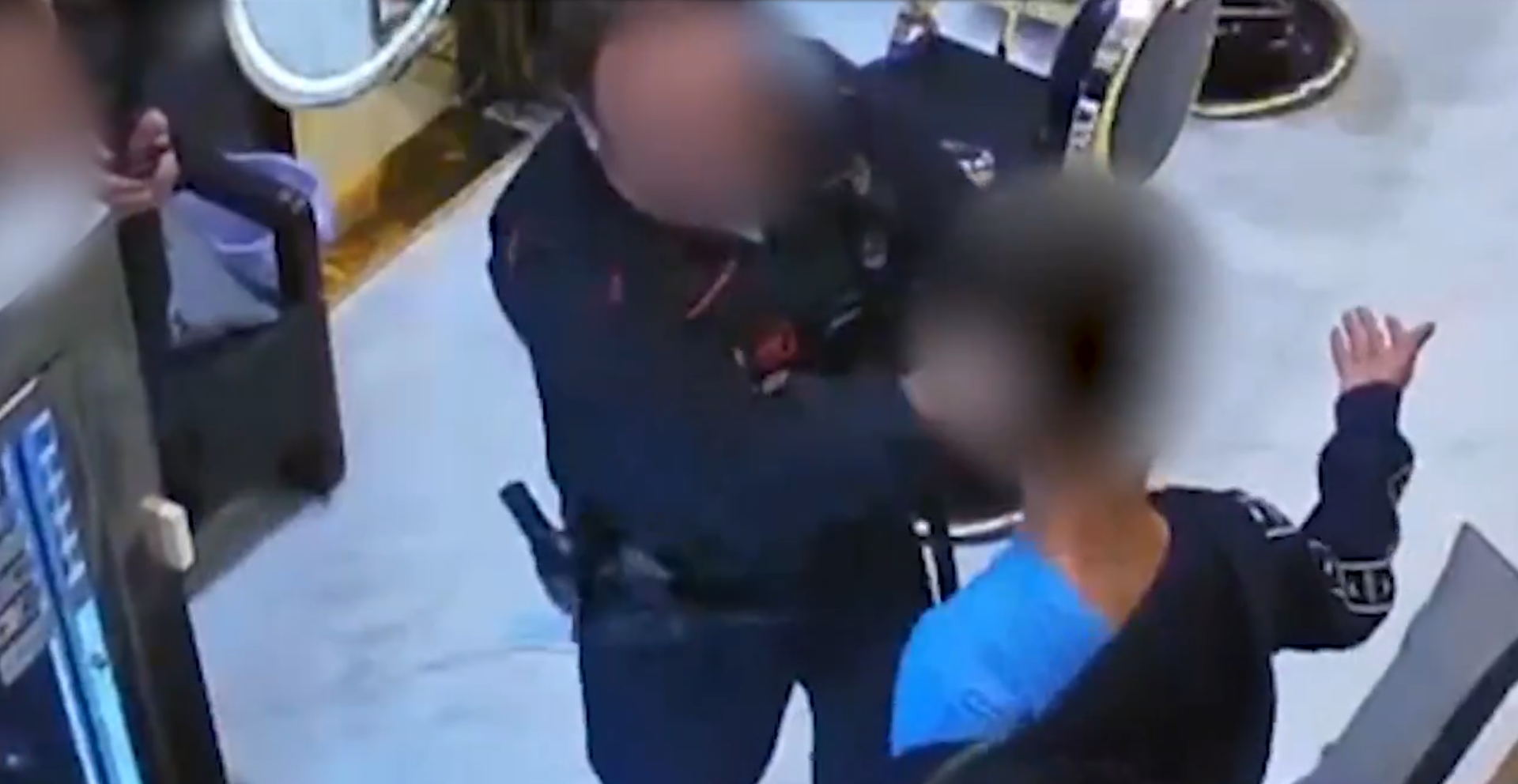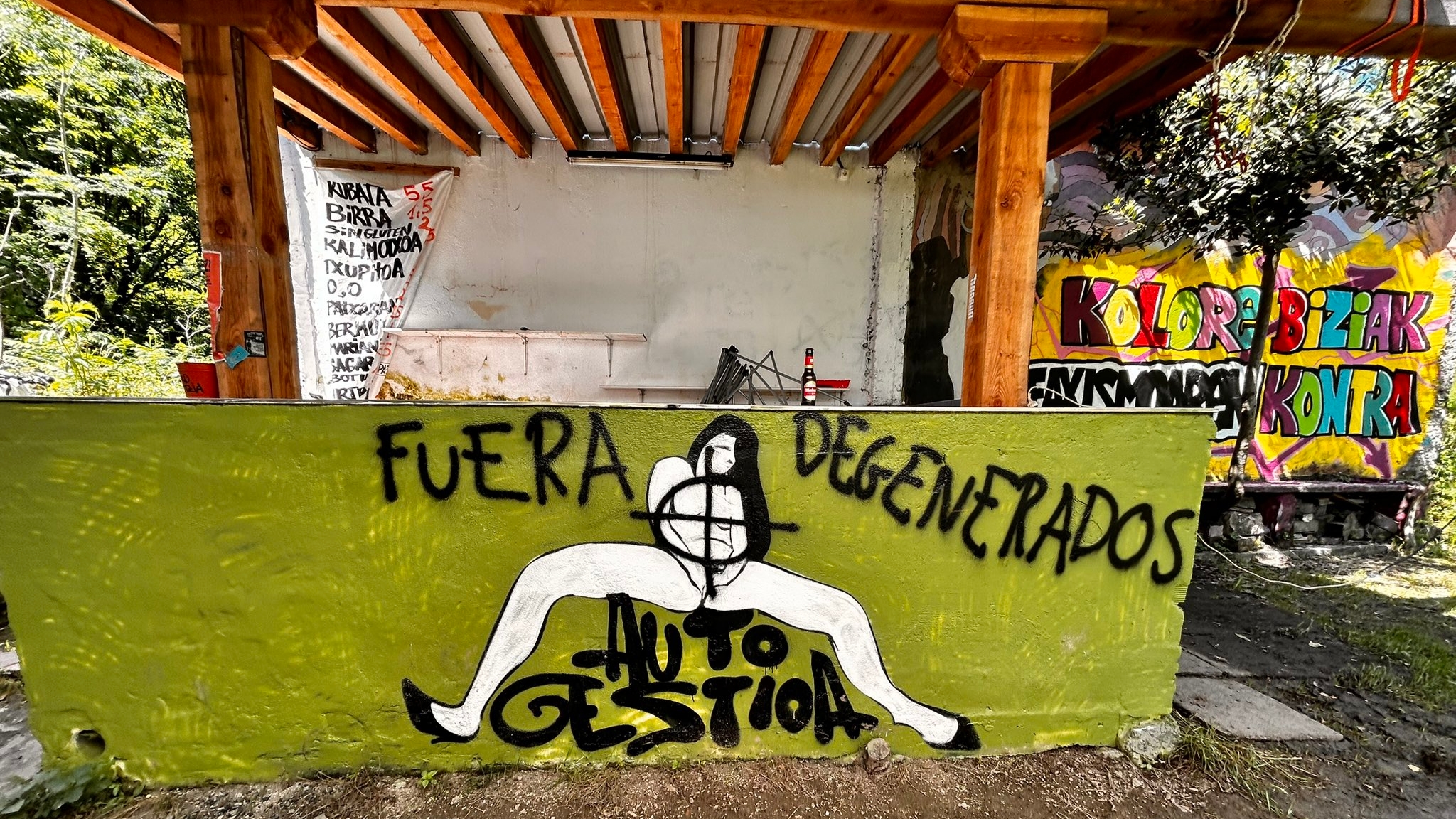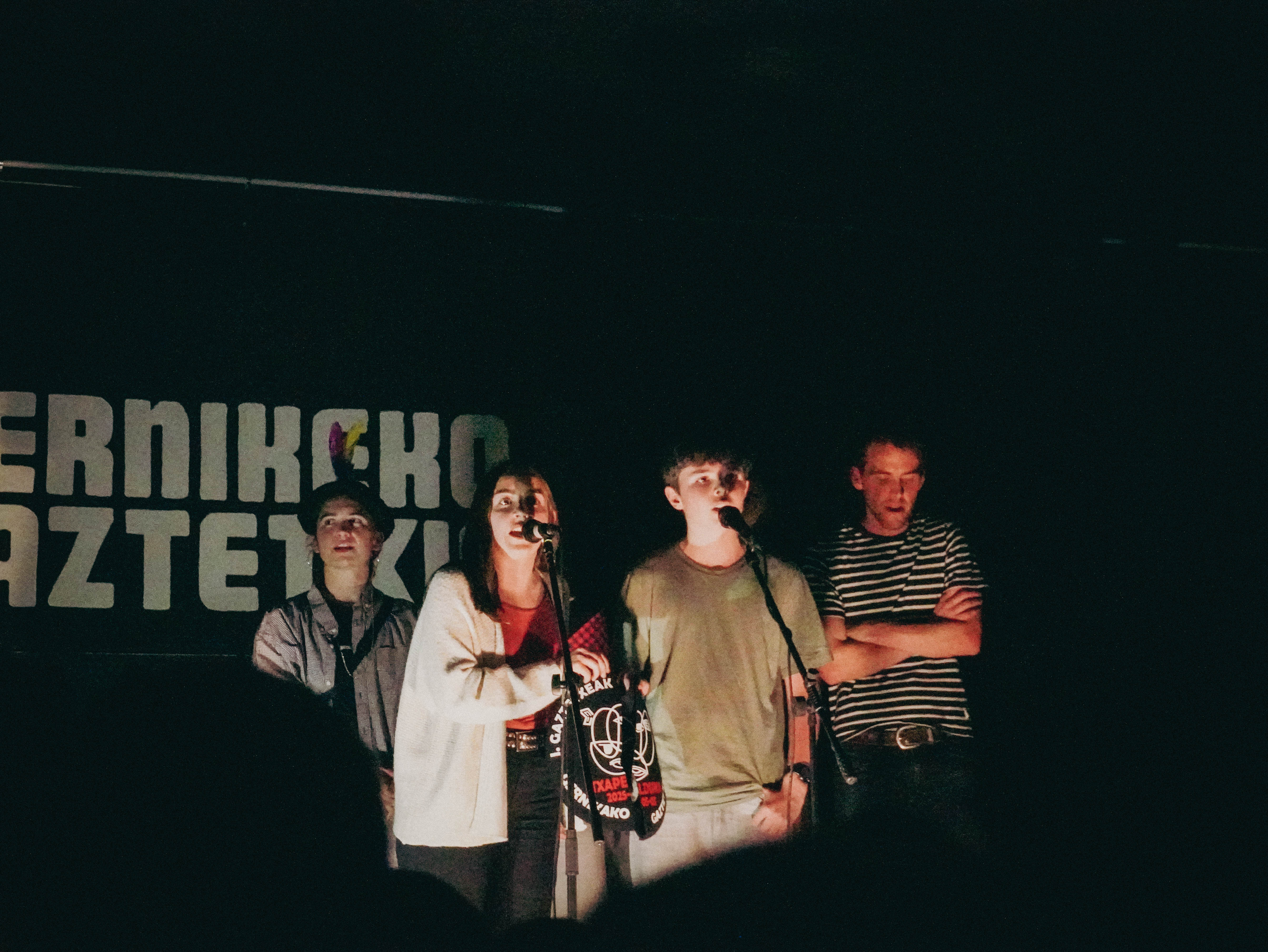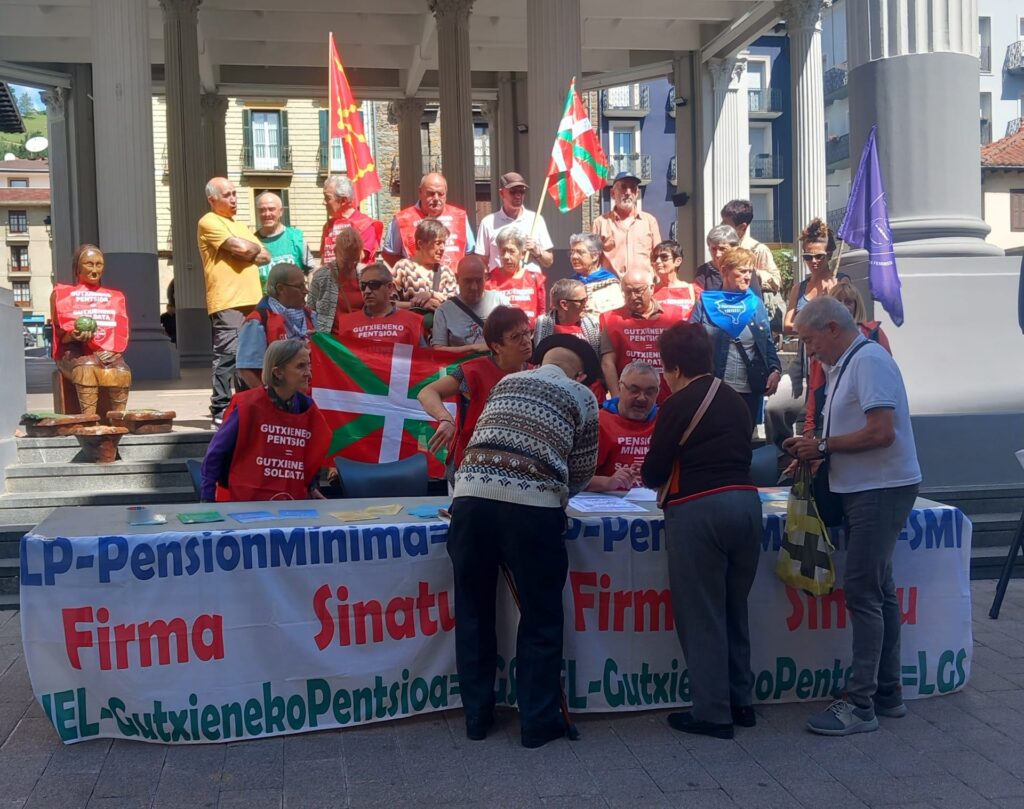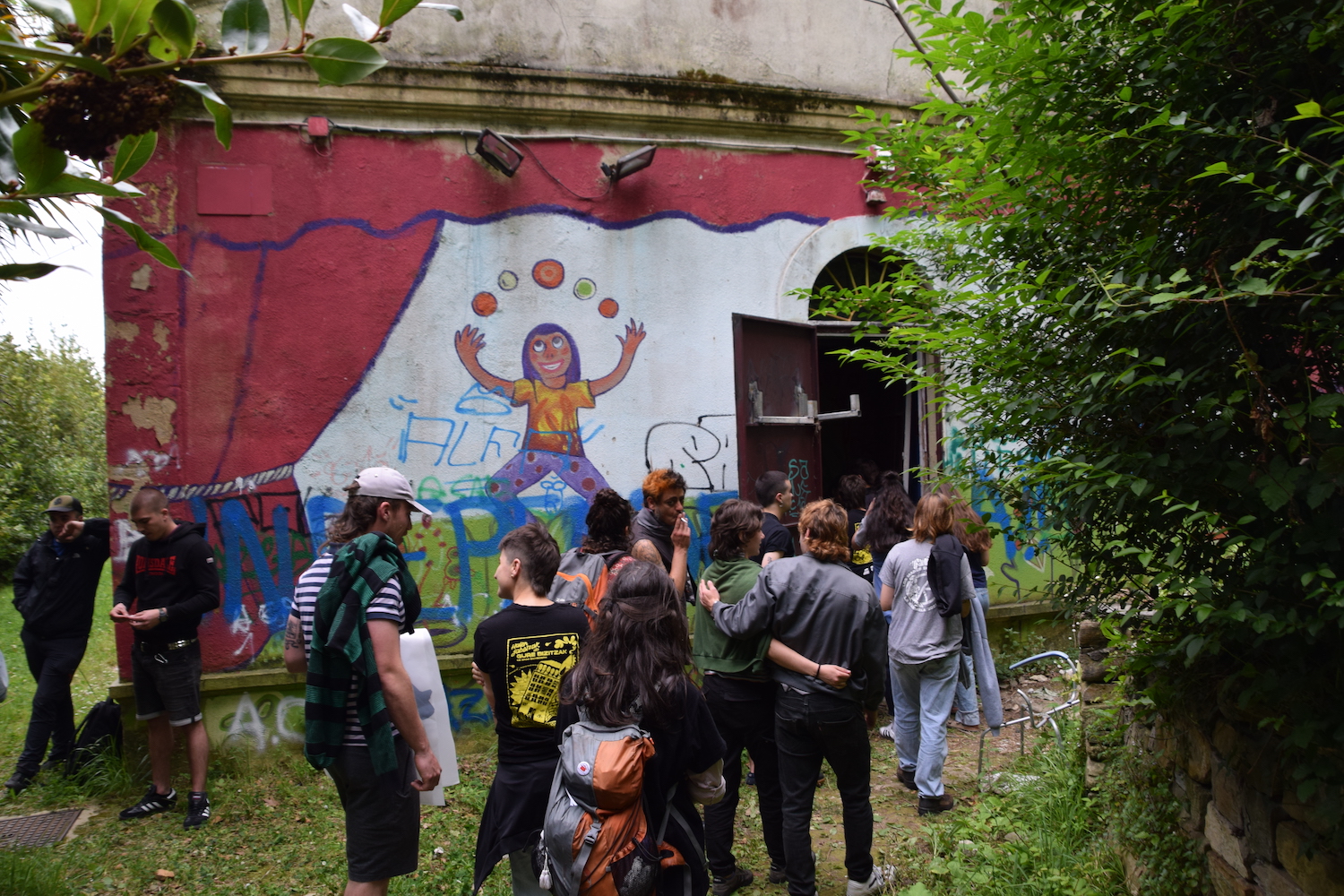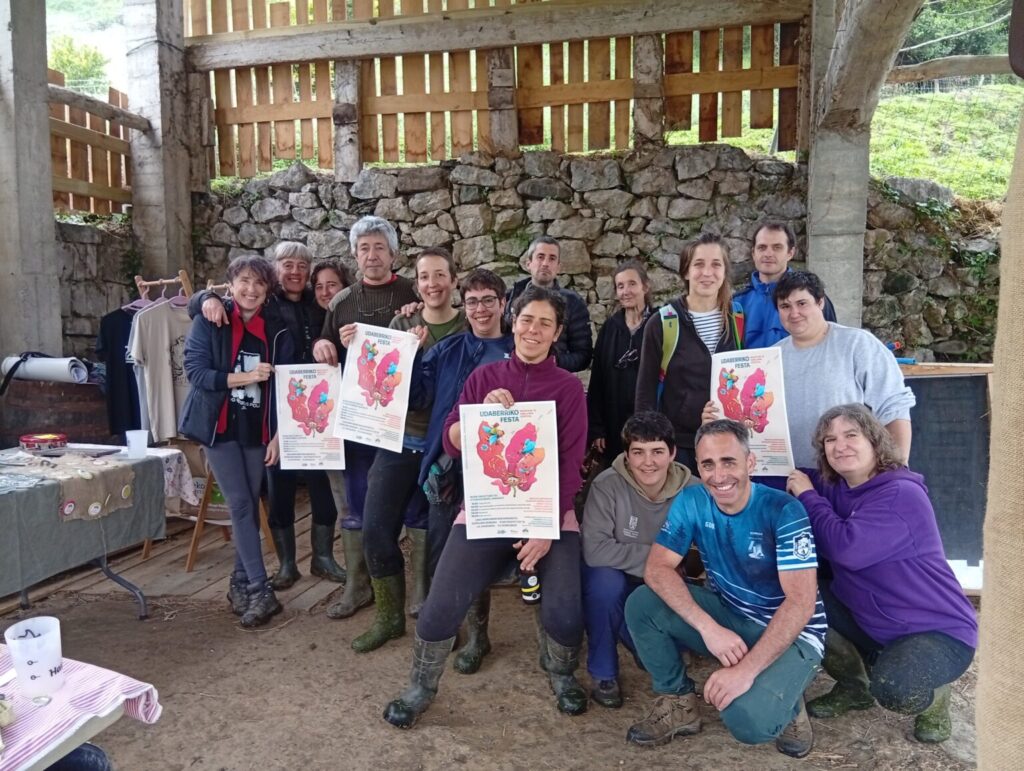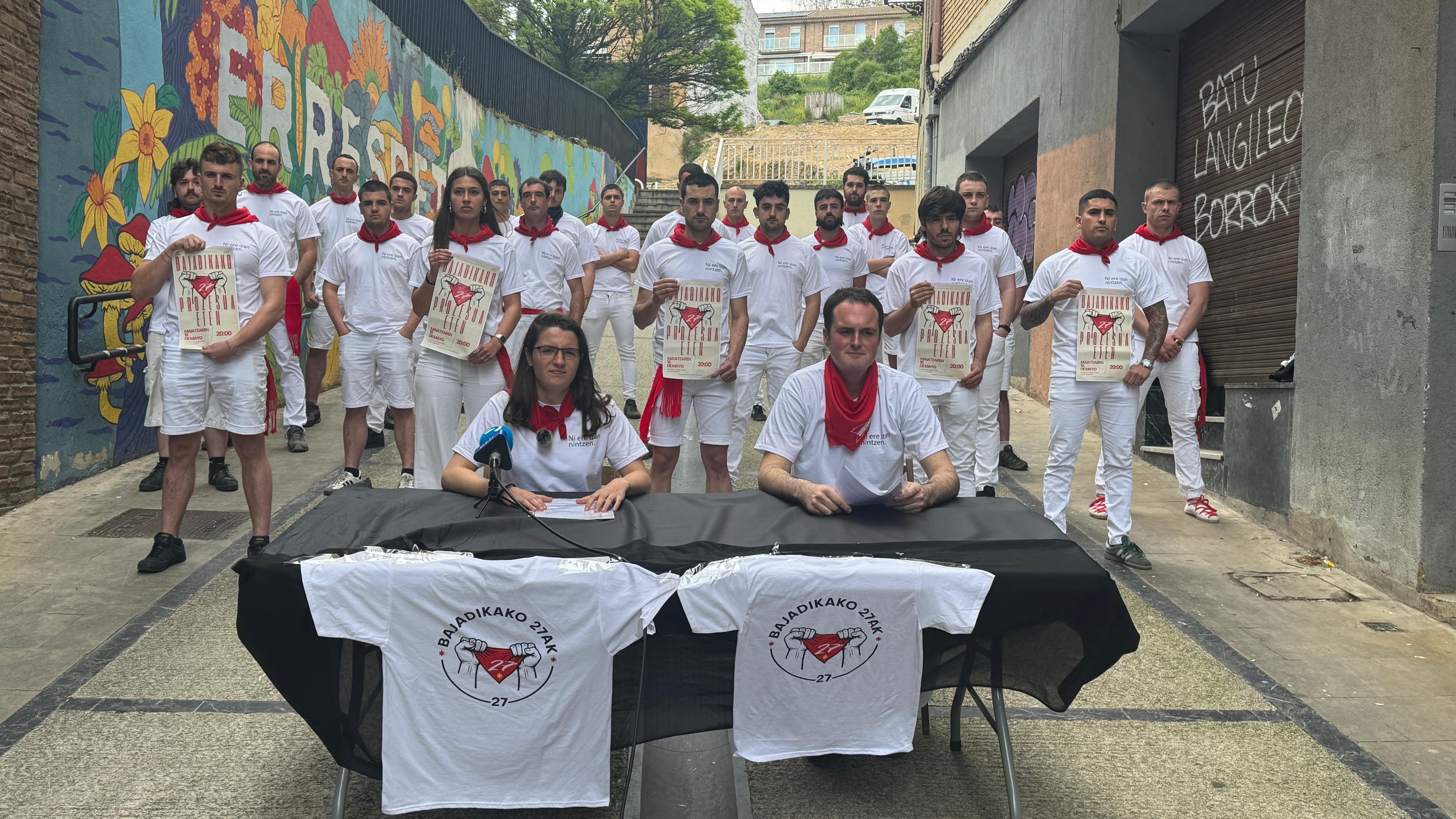Shelter for the night or revolution?
- The world does not change by seeking refuge for the nudes. This idea was transformed into a poem by Bertolt Brecht, who was sung by Mikel Laboa. Does the construction of a country for revolutionary purposes share this conviction? Have the grass-roots movements left out of their struggles the daily satisfaction of basic needs? Why? In times of the neoliberal offensive, does grass-roots action have to deal with the fight of shelters or food? How can we reconcile immediacy with revolutionary horizons? What do you have to learn, what do you unlearn?
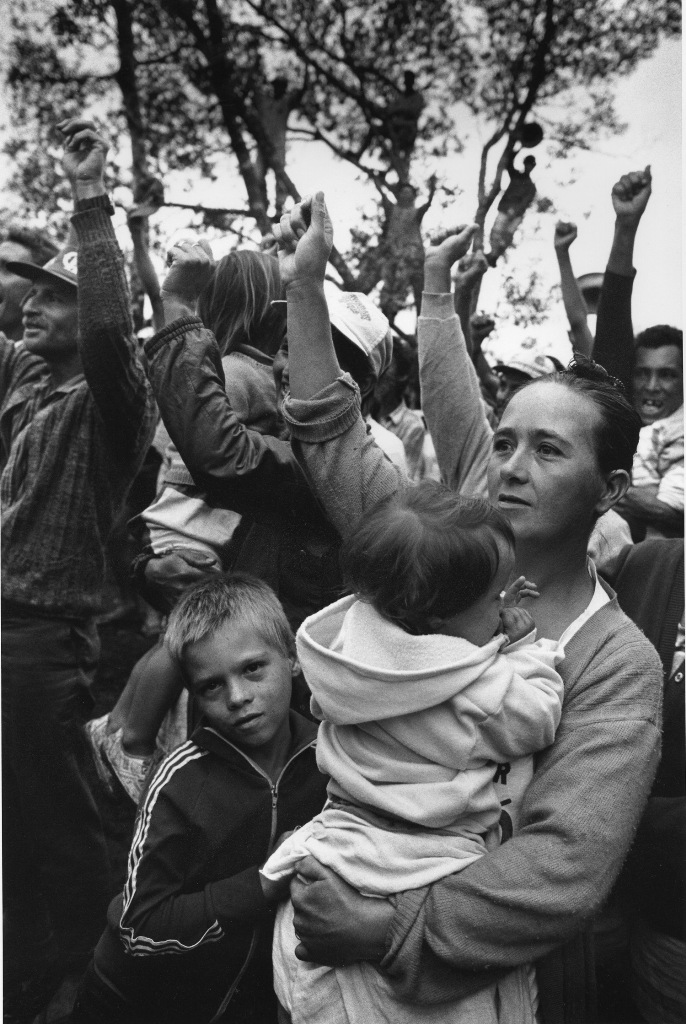
Housing, food, clothing: night shelter for nudes. His struggle has not been, in recent decades, on the agenda of the popular movement. No, at least, in movements that want to change the world.
Are they not the problems of country building?
“The head thinks where the feet go,” said Paulo Freire. The members of the Basque popular movements, in general, do not trample on the most marginalized spaces of society. For decades, moreover, the capitalist patriarchy has shown its kindest face in our country. The decades of 1990 and 2000 have had the least poverty and are the ones that have developed the most public benefits. At the same time, the neoliberal logic nested within us. Poverty and exclusion were increasingly ruined by personal guilt, less by the model of society. If such a view is introduced, shame over cholera prevails for the poor; shame is more hidden than it comes to light; there is no need to fight what is hidden. Since the neoliberal attack of 2008, however, these objective and subjective realities have been transformed.
There have been, and there are, citizen practices and initiatives that have addressed these realities, of course. There have then been other contradictions: fights have often not been attended by the hardest hit. A couple of examples: housing occupations have had more weight in the political choice of young people than those excluded; in the initiatives for Income Guarantee initiatives, the main protagonists have been the members of the movements that do not need this benefit.
On the other hand, on the radical left there has also been an ideological contempt for these areas and these tasks. According to researcher Cristina Vega, for years “everything that remembered vulnerability diverted attention from revolutionary activity”. The search for a refuge for the night has often been related to the welfare attitude and to the charitable, churches and NGOs most dependent on the institutions. Does the world not change this way? Or has popular construction abandoned a battlefield that can be transformative in the hands of those who do not want to change the world? Is it necessary to develop ideas, values, practices, sensitivities that combine the Northern Revolution with the satisfaction of everyday needs? If yes, there are the three friends we interviewed for this report: Janaina Strozake, member of the Brazilian Landless Movement (MST); Alex Winfield González, of the Platform of Affected by Capitalism and the Mortgage of Manresa (PAHC); and Marta Abiega Ayus, a member of the Bizkaia Host Network (BHS).
Latin America, working for a long time
The experiences in Latin America are varied and come from far away, as the extreme neoliberal models were already imposed there long ago. MST is probably the most referential movement across the continent. It consists of hundreds of thousands of people, distributed in hundreds of camps.
J. Strozake:
“The MST is based on immediate and concrete needs. The core is access to the ground, occupying disused land. We must achieve land reform for all, a second longer-term objective. But as reform would go back if it did not derail capitalism, the third goal is social transformation.”
Janaina Strozake has been a MST militant since his foundation in 1984. Since 2008, it has maintained a close relationship of “love” with the Basque Country: “The MST is based on immediate and concrete needs. The core is access to land, the first objective is to conquer it by occupying the land that is not used. Beyond the impending struggle, we must achieve land reform for all, a second longer-term objective. But we know that if capitalism does not collapse, land reform will shrink. That’s why social transformation is our third goal, socialism or communism.” Strozak explains the land occupation process: “You work with the nearby population. In Fabeleta door to door, with the union, with the church...”. The recipients are the expropriated, mostly without militant experience, who do not have to share the MST values. In order to prepare for the silent occupation, training talks were previously held “to deal with practical issues and political principles”. The working groups are composed according to the needs: health, food, safety, education... All people are members of a “and at the same time a core” working group. Occupation is the first step in an infinite path: resistance, legally earning land, improving living conditions, boosting production... Fighting to build a different life at all times inside the camp.
Euskal Herria is mostly a citizen, but the values and practices of the MST “serve any organization. From a nursery to a movement on the ethical bank.” In the Brazilian capitals there are thousands and thousands of homes occupied by very diverse movements, many of them share with the MST various ways of doing.

From the Catalan Countries, responding to the 2008 attack
Catalonia was violently hit by the austerity policies imposed by the government of Artur Mas on the occasion of the 2008 crisis. The anti-capitalist sectors of the occupied Manresa and the independence left decided in 2013 to address the struggle for housing “to meet the needs that are not satisfied by markets and states,” says Alex Winfield. “The first assembly was very multitudinous, unknown people, which does not come from a particular political culture. At first, most of them were white people with mortgages and jobs. It has been changing since 2015. There are those who are unable to pay for the rent, those who are on the street, those who share a small house among 15 people. Today, the majority is a Moroccan community.”
The PAHC performs occupations, achieves social wages, concentrates to stop evictions. “We have avoided hundreds of evictions.” The housing is occupied by seven housing blocks, in which approximately 60 families and 250 people live, according to municipal sources. It also has three women ' s groups, a public school with 64 children and an area for young people who have just left juvenile centres.
Every Sunday, 50 and 70 people meet in the assembly. Firstly, they address collective and organisational issues: new occupations, coordination meetings, political debates, mobilisations. The following are more “particular” cases and needs: the family to which the bank has given date for eviction, the newcomer on the street, the problem of coexistence of a block, the person with a bank appointment or social services. Accompaniments are one of the axes of the PAHC. Nobody goes on a date alone. It is a measure of solidarity and empowerment to deal with linguistic and informative problems, administrative injustices, contemptuous attitudes.

In the Basque Country, in its beginnings?
Among us there are also movements that want to develop the struggle in that tension between the short and long pass. Marta Abiega is one of them. During the summer it has been immersed in the Neighbourhood Reception Network of the Biscayan capital. The network was created by providing a rapid response to a specific situation, but it has assured us that they will continue.
In addition to offering refuge, food or legal advice to migrants arriving in Bilbao, they have mobilized and have placed the origin of the situation in capitalism or in imperialist policies. It is a critical starting point with the attitude of the left and the popular action towards the needs of the disinherited: “Sometimes, by saying that this is the work of the institutions and not of the citizens, we justify our lack of action. What was most urgent was to eat and we've spent a lot of energy on it. Some, disgruntled, have not taken part in it. I usually use the words of a Cameroonian: ‘we have to live in the meantime’. While you get the papers, while you get the residence...”. In that interval, Abiega and many others decided to respond.
The beautiful and misery of the mix
Women have an important presence in these types of movements. Many relate care and reproductive work with being more present in the struggle
Winfield, Strozak and Abiega have highlighted the diversity within their movements: on the one hand, people of very different socio-economic conditions, including impoverished migrants; on the other hand, people from left-wing militant political cultures and without experience or militant references, who join the movement for mere material need. The space and time of the militancy and of life, which are usually clearly differentiated, sometimes tend to intersect. It's a mixture that has a lot of beauty. “The positive difference is that we all learn and teach at once,” says Strozak. “Our frameworks and analyses serve us for some things, but reality is always capricious, class, race, gender are blended... and a thousand explosions are produced,” Catalan says. Women have an important presence in these types of movements. Many relate care and reproductive work with being more present in the struggle.
Ugly and perilous also abound. Abiega and Strozak have highlighted the "risks of idealization" of the film. Being aware of diversity, where and how to put the red lines? In the PAHC blocks and in the MST camps, for example, the chauvinist aggressions mean the expulsion of the aggressor. And they happen. Power relations within the organization are a big problem. The trend is as follows: “politicize” and socioeconomically integrate the powerful; “do not politicize” and reject the powerless. Strozak was rude. “There are people who have had the opportunity to read, learn, feed themselves properly in their childhood due to birth conditions. Their ability to analyze the world is fundamental to class struggle. But the transformative struggle will be done by those who need it. A university professor, a worker with a good job, is not going to do it. People on the street, people who have been evicted or forced to migrate, that's right. The question is how to reconcile these two realities. But the direction should be marked down.” At the PAHC, “there are power relations,” says Winfield. White scholarly militants are a minority in the assembly, but their number and weight do not match. “They are hierarchies that we must control and reduce, with ways and means that we are finding along the way.” It attaches importance to “promoting reflection and collective intelligence” above individuals.
Relationship with the institutions
They all try to develop their own autonomous tools and capabilities. But they also address the institutions by demanding compliance with fundamental rights. The balance is difficult, ideologically, both because of the effort to invest and because of the risk of being deactivated, co-opted or assimilated. “It’s a balance that requires a lot of political training. But as long as the revolution does not take place and the state will disappear, we must dispute public money. It’s ours,” says Strozak. Winfield is on a similar path: “We demand the administrations. In general, the relationship has focused on conflict and there has been a time of negotiation. Our activity has strained the administration and modified some of its policies.”
Abiega has addressed the issue from another place: “What relationship do we have with the great associations that have an intimate relationship with the institutions? Red Cross, CEAR, Doctors of the World, Caritas. Some workers in these associations tell us that they cannot participate in the protests, because the institutions would miss them. The associations that have these attitudes do not have to stop our activism.”
“Let’s not content ourselves with voting every four years”
This is not the result, if you get a refuge for the night, Strozak warns us: “The question is how to make the house, the light, the process of getting food for us to form. Once achieved, let us continue to be interested in political life, so that it does not seem enough to us to vote every four years, so that only paid work is not enough”. Fruits do not ripen massively from one day to the next. “A lot of people come in and out at all times. People who come in with a problem and after solving it continue to shine. Those who along the way have ideologically transformed the way to understand the problem itself. They are few,” says Winfield. But the picture isn't white or black. “There are others left because they want to return the solidarity they have received, there is affection and they remain for recognition, or that we are left to feel useful.”
The process has to be done by everyone. Repolitization must be global. For a classic militant, who moves in a certain economic stability, household tasks also appear in the interviewees' voices. Abiega, Strozake and Winfield, successively: “to have an attitude of unlearning at all times, including our ethnocentrism. We are a little elitist, and we tend to go to endogamy, to gather together among equals”; “The feet on earth, to keep us at the base. We have to be connected to the most disadvantaged people; “Stop doing all the prejudices and start doing things. From our political positions and values, of course.” There are many things to gain, but there are also many comforts and positions to lose.
We've read Bertolt Brecht's poem to the three addresses, asking them what he suggests. “Maybe we think the world doesn’t change like that. But I think the world also changes like this. I have felt that this summer was changing at times,” says Abiega. Strozake thought of Fidel Castro's words: “What you have solidarity is sharing, not what is left for you. A person who is hungry and cold has no tendency to think about revolution.” “I’m sad and thrilled,” Winfield says, honestly, “but we have to find a way to bring them together, because without one, the other is not possible.”
Difficult conciliation exercise to get overnight shelters and change the world. Changing the world without shelter for the naked is an impossible exercise. Shelter for the night or revolution? Refuge and night revolution.
Errepikatu nirekin: Sara Millerey. Ez dezagun ahaztu bere izena. Transfeminizidioaren biktima da Millerey: gorrototzaile transmisogino batek torturatu zuen, besoak moztu zizkion eta bizirik bota zuen ibaiertz batera. Bi orduko agoniaren ondoren hil zen.
Errazagoa da J.K... [+]









